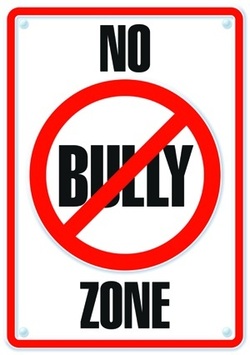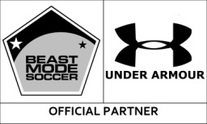There is no place for bullying anywhere in life. If you are aware of bullying in your soccer (football) team you must address it immediately because of the wide-ranging consequences for the individual and the team.
Good practice
You should have a bullying policy at your football (soccer) club, but it is even better to deal with the problem before it starts.
Be aware that bullying can have small beginnings, so stamp out any minor indiscretions at soccer coaching sessions or matches immediately.
Be a presence in places where groups can gather. Listen as you wander around the soccer coaching practice.
Reassurance is quick, but don’t take a simple answer that the player is OK to mean that he is not under pressure.
Victims of bullying are often “easy” victims. In other words they have weaknesses which can be exploited, such as weight, lack of skills or communication problems. Don’t put these players in compromising positions in training.
Recognise the signs of bullying
A bullied player’s behaviour changes - look for signs that youngsters are becoming withdrawn or reluctant to get involved. They might stop coming to soccer (football) training for no reason or start making excuses not to train or play.
You might notice that they have stopped taking part in the banter with other players or have become the butt of their jokes. It might just be that they are left out and not passed the ball during games and soccer coaching drills.
Good practice
You should have a bullying policy at your football (soccer) club, but it is even better to deal with the problem before it starts.
Be aware that bullying can have small beginnings, so stamp out any minor indiscretions at soccer coaching sessions or matches immediately.
Be a presence in places where groups can gather. Listen as you wander around the soccer coaching practice.
Reassurance is quick, but don’t take a simple answer that the player is OK to mean that he is not under pressure.
Victims of bullying are often “easy” victims. In other words they have weaknesses which can be exploited, such as weight, lack of skills or communication problems. Don’t put these players in compromising positions in training.
Recognise the signs of bullying
A bullied player’s behaviour changes - look for signs that youngsters are becoming withdrawn or reluctant to get involved. They might stop coming to soccer (football) training for no reason or start making excuses not to train or play.
You might notice that they have stopped taking part in the banter with other players or have become the butt of their jokes. It might just be that they are left out and not passed the ball during games and soccer coaching drills.


 RSS Feed
RSS Feed

